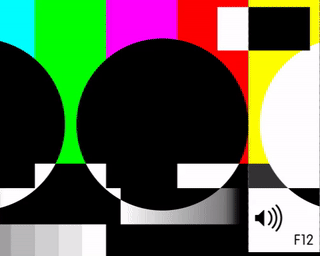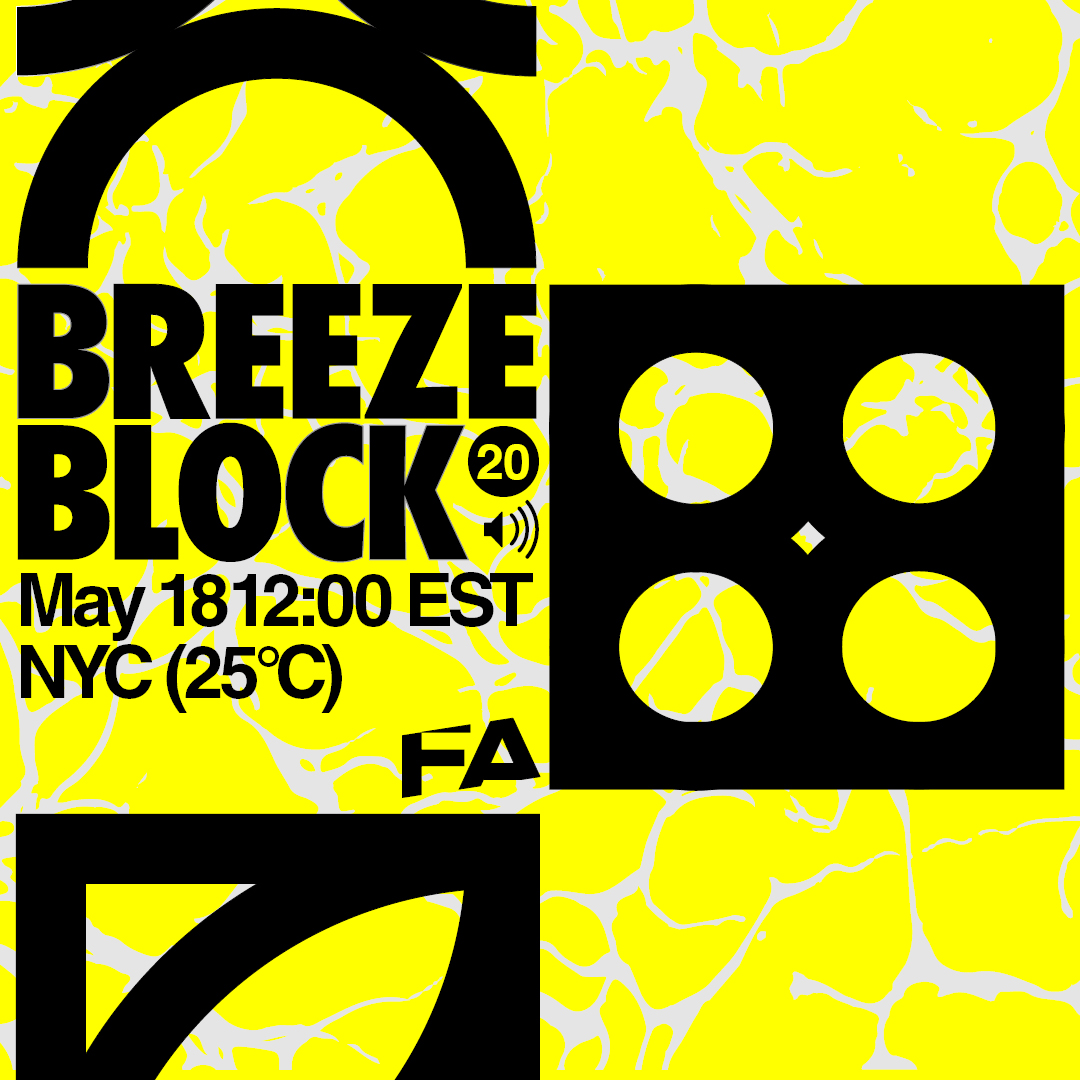Episode Transcript
Speaker 0 00:00:17 Hello everyone. And welcome to field architecture, breeze blocks, where our editors share their thoughts on works in progress, urgent matters, and current happenings in architecture and spatial politics. My name is Kristen, who I am an editor at failed architectures, New York city team. And I'm here with Leisha Hanrahan, a writer, an independent researcher in New York city. Today, we're here to talk about a sound, perhaps one of the only sounds that is now heard in the city streets during the current pandemic sirens, as FAA has previously touched upon and podcast number nine sounds can impact how we experience the city. And in this particular case with sirens in the new epicenter of the COVID 19 outbreak, we'll be discussing how these sounds might reveal something more leisure. Can you tell us about sirens and what they're telling us now and how people have been reacting to them in New York city?
Speaker 1 00:01:12 Sure. Thanks so much, Kristen. So everybody has been talking and writing about how, you know, these are, there are these constant ambulance sirens in New York. Um, as the hospitals are filling up with COVID patients, um, and they make people very anxious, right? They're this kind of inescapable reminder that people are sick and dying, um, which is, which is absolutely true and absolutely valid. And they freak me out too. And so it kind of enforces the shelter in place order almost on its own. This sort of sustained fear is enough by itself to keep people inside, um, except for, you know, obviously hospital workers and, uh, other essential workers who are made to assert this kind of like spacial dissonance, um, if they do want to survive. Um, so, you know, obviously who, who has to go outside and face down sirens and be exposed is also super racialized, um, in New York and elsewhere, uh, it's disproportionately people of color who are having to work and getting sick and dying.
Speaker 1 00:02:11 Um, and so one thing that's been brought up in some things that I've read is that, uh, extensively sirens are sort of meant to alert the public to an emergency. So the people on the street guy of the way, um, and it's been argued that now when everybody already knows about the emergency and nobody is in the way, um, sirens then must be totally redundant. Um, but that's not. And that would be true if this kind of informative gesture was actually what sirens were for, you know? Um, but I, I, I don't think they are right, like, uh, and the fact that they're still going and the people are reacting, reacting to them in this way, does reveal kind of intentionally or otherwise, uh, they're more underlying purpose, which is, and has always been social control. Um, this is true throughout history and across the world.
Speaker 1 00:03:04 Um, and, and in addition, this, the reaction to sirens that we have this anxiety does seem to affect people differently, um, according to different social factors, right? Um, particularly class, uh, race, location, profession, et cetera. Um, so it's also interesting to see the geographic distribution of things that people are saying like, oh, you know, all the other sounds are gone. I miss the sounds of the city so much. I can't believe I miss construction out my window at 7:00 AM. It's so quiet except for the sirens. Uh, at the same time as actually on 3 1, 1 noise complaints are up 23% from this time last year. So there was a, there was a New York post article that was published on April 1st, uh, which reads quote, New York sounds like London during the blitz says Ash Bennington, who also lives on the upper east side. Uh, and it's, it's ironic that, uh, the next historical points of reference is somehow London, 80 years ago.
Speaker 1 00:04:04 And it's also ironic that Michael Kimmelman in the times felt similarly somehow when he limited the closing of businesses and insisted that during the blitz, even the national gallery stayed open in London. I'm not, I'm not sure how people are imagining that nothing has sounded like this since the third Reich. Uh, and that's not, that's not an effort to reduce this to like a hierarchy of sound privilege. That's pretty, that's pretty two-dimensional and boring, but I do think we need to be thinking about this as sort of structural phenomenon, right? It's a historical for us. It's not a one-off and it's not particularly, um, a state of exception as such and,
Speaker 0 00:04:44 You know, to your point about class, right? I mean, the, that comment is coming from someone who lives in the upper east side, and it's no mystery to anyone in New York that that area is a very wealthy neighborhood. Totally. Um, I was actually
Speaker 1 00:04:56 Reading something just today about how police presence in poor black neighborhoods hasn't really decreased, right? Like the crime rate in the city has gone way down since the pandemic started. And since the shelter in place order happened in Bubba, but actually the NYPD are still this like constant problem. Um, and their patterns of harassment in poor neighborhoods haven't really evaded. Right. So that kind of presence, um, while it might be alien on the upper east side is like, it's still, it's still going.
Speaker 0 00:05:31 Right. Right. So it's like, there are a lot of articles being published about people reacting to like all of a sudden sirens are everywhere now neighborhoods where police presence is normally very high. It seems like probably business as usual in terms of the amount of sirens and noises coming. Totally.
Speaker 1 00:05:47 Yeah. And I think it's, you know, I don't, I don't want to argue that there is absolutely no, no difference. Like I think I'm, I know that technically they sound a little bit different. Um, I'm never actually able to parse them out myself, but I know that theoretically they're not identical sounds, but regardless, I do think that the sort of more general social effects of a police siren when it's like no one to be a police siren is different from the social effect of an ambulance siren. When it's known to be an ambulance siren, I can, right now all sirens in most of the city are presumed to be ambulance sirens. Right. Because I think that, uh, police sirens themselves market danger, right. They signal danger, um, in that they signal the presence of cops, or if you choose to interpret law enforcement a different way, they signal the presence of crime or whatever. Um, whereas ambulance sirens signal a response to dangerous sort of on paper, right. So it's not, it's not a total one-to-one. Uh, but I do think that the sort of baseline effect is the same.
Speaker 0 00:06:48 So to go back to your point about sirens and social control were sirens always used for social control or trying to understand like a little bit more about the background of sirens, you know, what kind of, what groups of people do they affect and what's really their history. Sure.
Speaker 1 00:07:07 Um, you know, I am, I am not a siren historian. Uh, we have, we do have this quote that we kind of both pulled, um, from Sonic warfare, by Steve Goodman. So sound is often understood as generally having a privileged role in the production modulation of fear, activating instinctive responses, triggering an evolutionary functional nervousness, take the siren. For example, invented by August, see back in the 19th century, quote, the siren broadcast distress is a centrifical sound designed to scatter people. And it's passed unquote by pulsing waves of non-linguistic commanded to disperse population. A siren obviously signifies alarm, but more interestingly here it's very modulation of frequency provides a state of alert that can undermine an override cognition. Sirens are also used by the FBI for torture has been documented by Amy Goodman and plenty of other people, all of this is, is theoretical. It's also just kind of, uh, an empirical subset of data, right?
Speaker 1 00:08:03 Like, um, we can look at areas, sirens during war time stages such as the blitz, but the same thing is in play again, anytime that there is heavy police presence in a poor neighborhood, which, you know, it, it either alerts you to the presence of crime, if that's what you're worried about or to the presence of cops, if that's what you're worried about. But it's also something that is used everywhere to enforce curfews both in terms of Corona virus. And just in general, like there was a place in Louisiana where cops were using a recording of the siren from the movie, the purge to tell people that the curfew was starting and they kind of got called out on it. And they were like, oh, we didn't know. We thought it was just a military site. Yeah.
Speaker 1 00:08:55 If you listen to recordings and something, I'll go to Chula during the military curfew last year, air raid sirens in Jordan regarding coronavirus now, I mean all over the place, even, even oh, rads are used here in the states and elsewhere, often by cops to try to disperse protesters, although I've never seen them actually work. So it, it is a historical constant. Right. Um, and it's interesting that specifically this passage, uh, brings up frequency because there was a legislation before the New York city council last year saying that, uh, New York city sirens are too annoying. And so we should make them more like European sirens by changing their frequency by lowering their frequency, not their decibel level, but only their frequency, uh, so that they are less annoying, like our sophisticated counterparts over the pond. I don't think it ever happened.
Speaker 0 00:09:47 So it seems like regardless of how different people have reacted to sirens, um, and even the frequency or pitch of sirens, that's our instilled signal, an urgent call from institutions and control to those being controlled. We all feel more anxious around sirens, but there's a difference in how people react or are required to react in flux, according to a variety of factors that the built environment sets up. Yeah.
Speaker 1 00:10:14 Um, and you know, that's true. And, um, if we didn't react that way, then sirens wouldn't be working in those institutions with, uh, we'd have to find something else. So I do think that the sort of crux of this is that, uh, sirens do, you know, make people anxious and they're supposed to make people anxious, right. That's how they work. It is that impact precisely that makes sirens function as well as they do, but how people have to react to that anxiety, right? Whether we are staying in our homes because the sirens remind us of sickness and we're afraid, or we are going out to work delivery jobs. In spite of the fact that sirens remind us of sickness and we are afraid, like these things are very different between, you know, geographically, between class lines, et cetera. And also whether or not we are used to sirens, whether or not the presence of a siren at all, or a certain frequency of sirens, uh, strikes us as being like exceptional or surprising or scary.
Speaker 1 00:11:10 And I do want to point out that the pervasiveness of ambulance sirens specifically in this context, um, I think is different. And it does problematize the sort of general motive maybe, but not really the result, like just that the sound of an ambulance in and of itself is technically it's telling you that maybe that something good is happening, right. Someone is getting medical attention when they need it. So maybe it's a kind of like, it's still a social control. Maybe it's a kind of softer and more benevolent social control because the aim is supposed to be a public health, but there is, there's a murkiness to that, right? Because ambulance sirens, as we talked about before, they don't quite signal danger the way that police sirens do, but rather a response to it. But when I'm saying, but not like benevolence is kind of in quotes, right.
Speaker 1 00:11:53 At least the public health outcomes here, can't be separated from governmental and economic concerns. You know, if you are governor Andrew Cuomo, you do want people to be alive and healthy, but not necessarily because you care about those people or their lives or their health, but because sick people and dead people don't work, right. They don't produce value for the state. So the idea of public health is it is like sort of the sensible motive here. And I think that that does change the tenor of the situation a little bit, but actually within capitalism, the idea of public health as like a priority is a really perverted kind of superficial thing. Yeah.
Speaker 0 00:12:25 I mean, uh, going back to your point about how people actually react differently or have to react differently to sirens also kind of reflects that unevenness and that kind of the unevenness and experiencing the sirens also reflects the equally uneven social and spatial conditions in the city. Right. And that like, even though sirens are meant for social control and are always anxiety inducing the degrees of anxiety and the actions that people take in response to them varies dramatically. And that can be reflected in how the city is made up and how we experience our data today and who we are as people, as well as like our class and relative to, to one another.
Speaker 1 00:13:09 Yeah. I mean, I think that that's absolutely right. You know, we inhabit soundscapes very differently. It is not sort of one universal experience because we all happen to be in New York or within earshot of New York or something. And I think that Corona virus is sort of making people, making people sort of either double down on really archaic notions of the community and of things that we share and of collectivity and of, you know, whatever, or it's making people really sort of think twice about what had maybe previously been assumed about things that we share and things that we don't. And so thinking, thinking about this constant source of anxiety, which is all around all of us at the same time, but actually has different impacts on our lives in these ways, maybe enhances our understanding of, like you said, the sort of social and spatial unevenness of what it is to be in a place.


